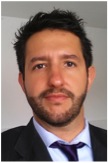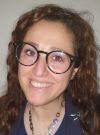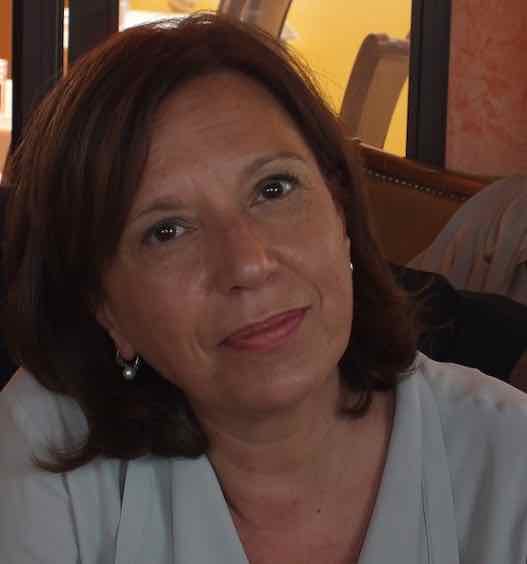Studying at the University of Verona
Academic calendar
The academic calendar shows the deadlines and scheduled events that are relevant to students, teaching and technical-administrative staff of the University. Public holidays and University closures are also indicated. The academic year normally begins on 1 October each year and ends on 30 September of the following year.
Course calendar
The Academic Calendar sets out the degree programme lecture and exam timetables, as well as the relevant university closure dates..
| Period | From | To |
|---|---|---|
| MED ING annuale | Oct 2, 2024 | Sep 30, 2025 |
| MED ING 1° semestre | Oct 2, 2024 | Dec 20, 2024 |
| MED ING 2° semestre | Jan 2, 2025 | Sep 30, 2025 |
| Period | From | To |
|---|---|---|
| Tutti i Santi | Nov 1, 2024 | Nov 1, 2024 |
Exam calendar
To view all the exam sessions available, please use the Exam dashboard on ESSE3. If you forgot your login details or have problems logging in, please contact the relevant IT HelpDesk, or check the login details recovery web page.
Academic staff
Study Plan
The Study Plan includes all modules, teaching and learning activities that each student will need to undertake during their time at the University.
Please select your Study Plan based on your enrollment year.
1° Year
| Modules | Credits | TAF | SSD |
|---|
2° Year It will be activated in the A.Y. 2025/2026
| Modules | Credits | TAF | SSD |
|---|
3° Year It will be activated in the A.Y. 2026/2027
| Modules | Credits | TAF | SSD |
|---|
4° Year It will be activated in the A.Y. 2027/2028
| Modules | Credits | TAF | SSD |
|---|
5° Year It will be activated in the A.Y. 2028/2029
| Modules | Credits | TAF | SSD |
|---|
6° Year It will be activated in the A.Y. 2029/2030
| Modules | Credits | TAF | SSD |
|---|
| Modules | Credits | TAF | SSD |
|---|
| Modules | Credits | TAF | SSD |
|---|
| Modules | Credits | TAF | SSD |
|---|
| Modules | Credits | TAF | SSD |
|---|
| Modules | Credits | TAF | SSD |
|---|
| Modules | Credits | TAF | SSD |
|---|
Legend | Type of training activity (TTA)
TAF (Type of Educational Activity) All courses and activities are classified into different types of educational activities, indicated by a letter.
Physiology 2 and Psychology (It will be activated in the A.Y. 2026/2027)
Teaching code
4S012565
Credits
8
Scientific Disciplinary Sector (SSD)
-
Learning objectives
The general goal of the course is that of being able to apply physiological and psychological knowledge, acquired during the course, to medical activity. Therefore, the student, at the end of the course, will have to know physiological functions of the different body systems and apparatuses, both from a biological and psychological point of view.
Module of Physiology
The goal of the course is to form students in relation to the following topics: - The role of the kidney in ensuring balance of the body for water and solutes, as well as acid-base balance; - Basal metabolism and activity metabolism, and the body requirements in terms of calories and specific nutrients, including the regulatory role of the nervous system and of various hormones; - The physiology of the digestive tract, including motility, secretion, digestion, and absorption; - The endocrine glands and their control by the hypothalamus-hypophysis; - The structure and function of the sensory and motor systems and their centers in the brain; - The structure and mechanisms underlying the sleep-wake cycle; - The cellular and molecular mechanisms of neuronal plasticity;
Module of Psychology
The goal of the course is to form students in relation to the following topics: - The psychological and neuropsychological bases of learning and memory, perception, attention, motivation and emotion, intelligence and language; - Hemispheric specialization and interaction, and the biological bases of perceptual awareness.
Examination Methods
The exam for the Psychology module will be written, with multiple choice questions, and will regard the various topics of the module, including: perception, attention, learning and memory, intelligence, motivation, emotions, language, as well as hemispheric specialization. The exam for the physiology module will be oral. The student will be evaluated by 2-3 examiners, with at least 4 questions in total. Questions will pertain to the various topics of the module, including the neurophysiology of sensory and motor systems, the urinary system, the digestive system, the endocrine system. Each examiner will express his/her evaluation in a score between 0-30 and the final vote will be a weighted average of the individual votes
Evaluation criteria
The student will be asked to illustrate the main concepts related to the topics detailed in the program. Exposure skills and clarity of exposure will be evaluated, as well as the ability to quantitatively illustrate the mechanisms that regulate the physiological homeostasis of organs and systems as well as psychological functions. In particular, the student's ability to reason in an integrative way and, therefore, to illustrate the integrated physiological adaptations in response to perturbations will be appreciated.
Free choice courses
Modules not yet included
Career prospects
Module/Programme news
News for students
There you will find information, resources and services useful during your time at the University (Student’s exam record, your study plan on ESSE3, Distance Learning courses, university email account, office forms, administrative procedures, etc.). You can log into MyUnivr with your GIA login details: only in this way will you be able to receive notification of all the notices from your teachers and your secretariat via email and soon also via the Univr app.

 giuseppe.bertini@univr.it
giuseppe.bertini@univr.it
 045-802-7682
045-802-7682








